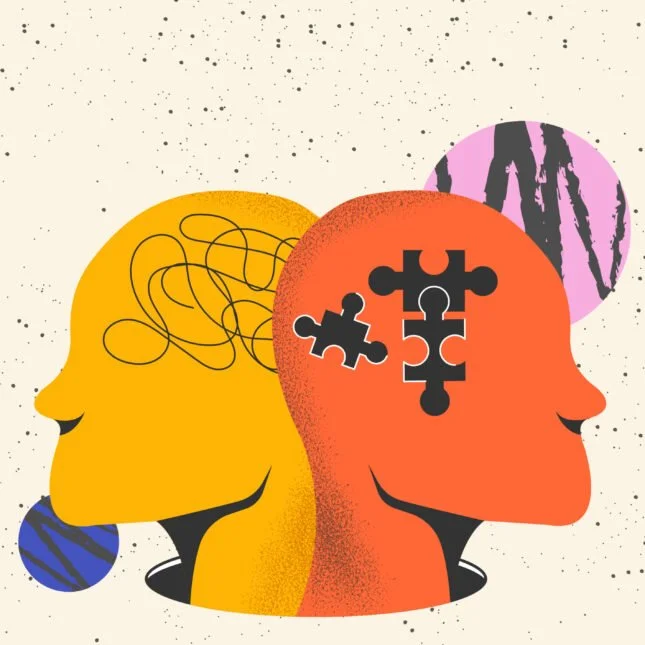Breaking the Stigma: Supporting Adult Mental Health in Vaughan
Although discussions about mental health have increased recently, stigma remains one of the biggest obstacles for those who need help. The temptation to look strong and capable can make it very difficult for the people of Vaughan to admit when they are struggling, as community, professional, and family obligations are frequently important to identity. Adults may be hesitant to seek help for mental health issues like anxiety, depression, or fatigue because they fear being stigmatized, misinterpreted, or even discriminated against. These issues are commonly written off as "just stress." Unfortunately, this silence not only causes mental distress but also keeps people from getting the care and support they need to recover.
Mental health stigma works in a number of ways. Commonly held negative attitudes and prejudices, such as the idea that people with depression are "weak" or that therapy is just for those who are incapable of handling life, are referred to as public stigma (Corrigan et al., 2014). When people absorb these messages and start to see themselves negatively, possibly thinking they are a burden to others or that their difficulties indicate they are incapable, self-stigma develops. Policies or practices that restrict access to care, such as workplaces that discourage seeking accommodations for mental health, are examples of structural stigma.
When combined, these factors create huge barriers that discourage adults from recognizing or seeking treatment for mental health issues. Research has shown that stigma not only delays seeking help but also impairs long-term results, with clients having more severe symptoms and a lower quality of life as a result (Corrigan et al., 2014).
In Vaughan, cultural norms could worsen the stigma. Many people come from a variety of backgrounds where open communication about psychological issues may be discouraged by traditional norms, community reputation, or family pride (Corrigan et al., 2014). Adults who feel pressured to keep up appearances whether to keep their jobs safe, keep their families happy, or avoid gossip often keep their problems to themselves. Feelings of loneliness, guilt, and shame may all be made worse by this sense of isolation, and they are all risk factors for mental health problems. People frequently cover up their difficulties by projecting an image of accomplishment on the outside while experiencing severe stress or emotional suffering on the inside.
Moving the conversation in the direction of acceptance and support is very important to end this cycle. Similar to physical health, mental health is a universal aspect of human beings. Adults should feel just as comfortable asking for help when they are experiencing emotional difficulties as they would when they are seeking medical attention for an injury or a bad cough. Reducing stigma and promoting early intervention can be achieved by normalizing therapy and counselling as proactive self-care practices. In addition to reducing present symptoms, early intervention helps avoid long-term issues like strained relationships, poor performance at work, and physical health issues. For example, studies have shown a strong correlation between untreated mental health issues and long-term problems like diabetes, heart disease, and compromised immune system function (Walker et al., 2015).
There are more and more options for those who want to put their mental health first. Private practices, community organizations, and local clinics provide a variety of services, such as group therapy, individual counselling, and culturally sensitive methods that honour various traditions and principles. Julia, a therapist in Vaughan can offer a private, secure, and accepting setting where adults may discuss their difficulties without worrying about being stigmatized. The goals of counselling may be to manage stress, create coping strategies, boost self-esteem, or deal with more serious issues like trauma or grief. The goal of therapy is to build resilience, create healthier relationships, and improve general well-being, not to label or show weakness.
Starting the conversation is one of the most effective things people can do in Vaughan. Talking about mental health breaks the silence that stigma depends on, whether that means contacting a professional, family member, or trusted friend. By encouraging loved ones to get help when necessary, speaking in a supportive manner, and listening without passing judgement, community members can also play a significant role. Companies in Vaughan may help by promoting work-life balance, providing employee support programs, and establishing workplace cultures that value mental health.
While eliminating stigma won't happen quickly, every time someone decides to talk openly about their experiences or encourages someone else to do the same, they are making progress. Recognizing mental health issues is not a sign of weakness for people, rather, it is an act of bravery that can result in healing, progress, and a restored sense of wellbeing. Everyone will have easier access to compassionate mental health care as we normalize these discussions.
You are not alone if you are experiencing mental health issues and you reside in Vaughan. The first step to recovery is asking for help, and there are resources available. Our community can guarantee that individuals feel encouraged, respected, and ready to take care of their minds and their lives by fighting stigma and promoting understanding.
References
Corrigan, P. W., Druss, B. G., & Perlick, D. A. (2014). The Impact of Mental Illness Stigma on Seeking and Participating in Mental Health Care. Psychological Science in the Public Interest, 15(2), 37–70. https://doi.org/10.1177/1529100614531398
Walker, E. R., McGee, R. E., & Druss, B. G. (2015). Mortality in mental disorders and global disease burden implications: A systematic review and meta-analysis. JAMA Psychiatry, 72(4), 334–341. https://doi.org/10.1001/jamapsychiatry.2014.250

